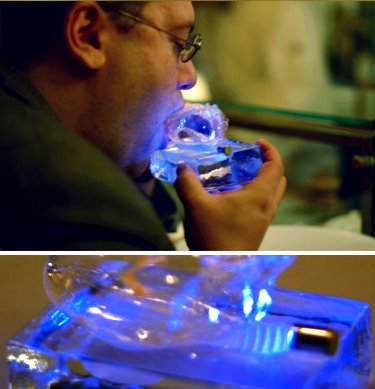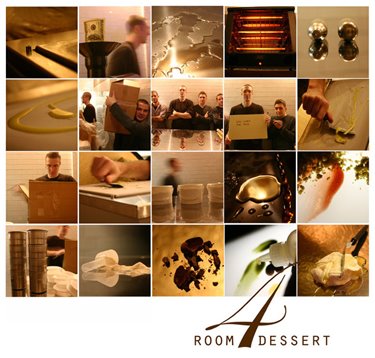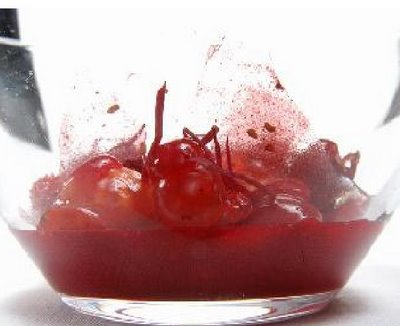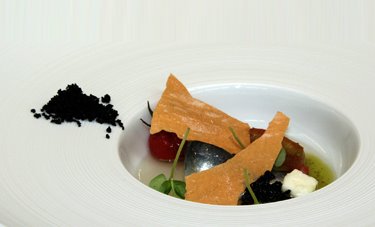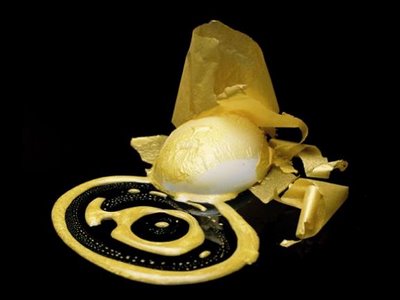::RESEARCH
:::::::::::::::::::::::::::::::::::::::::::::::::::::::::::::::::::::::::::::::::::::::::::::::::::::::::::::::::::::::::::::
CUTTING SCALE
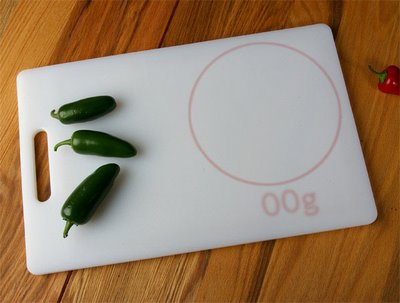 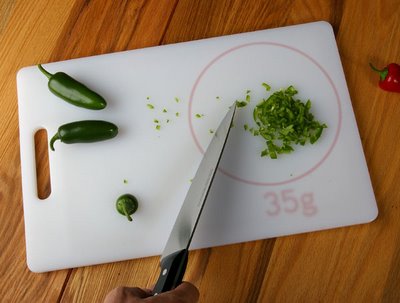 The results of the designboom / BÜSSEL'your way to coway' design competition are online.This concept by jim termeer and jess giffin (usa) is a cutting board that has an integrated scale within a defined area on it's surface. This allows a person to both cut and measure ingredients on the same surface with very little extra effort. Simply put, it precisely reduces the steps of preparation, dishes to clean, and time wasted. There has been a tranformative trend in cooking based around the science of food. Central to this is the idea that precise measument leads to more possibilities for new flavors. Recipies will become more demanding, requiring simple ways to be precise in the kitchen.
Technology feasibility: (estimated timeline for research and devleopment) Now: Manufacturing methods to embed the following electronics into cutting board material. 1-3 years: Strain guage sensor grid technology that enables precise measurements to be embedded in a substrate. 1-3 years: Low-voltage PV (Photovoltaics) that would provide suffecient power. 1-5 years: "Electronic ink" display technology that does not use light and can be embedded into substrates. [+ more ]via designboomLabels: design, product, technology
FLEXICOMB
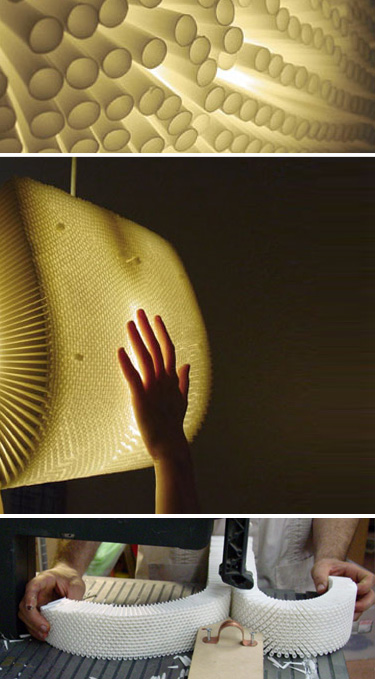 In the hands of Los Angeles designer/architects Dan Gottlieb and Penny Herscovitch of Padlab, light is several thousand drinking straws, packed into a honeycomb to make a new beautiful material. The idea for Flexicomb grew out of a research project on structural honeycombs at the Yale School of Architecture. Thousands of closely packed polypropylene tubes form the flexible honeycomb matrix, which bends in the convex direction while remaining rigid in the concave. This translucent material is a re-valuation of a disposable everyday product—plastic drinking straws. Flexicomb can be bent, sprung, and compressed to form sculptural installations, lighting, desktop accessories, and furniture prototypes. [+ more]via materiaLabels: material, sustainability
BIOMEDICAL IMAGE AWARDS
 Biomedical Image awards 2006 gallery is up with an amazing collection of the microscopic, who knew bread mold could look so good! - "The fruiting body of bread mould. As the mould grows, it propagates itself by forming spores that are released into the environment and grow into new mould colonies. Colour-enhanced scanning electron micrograph by Liz Hirst." [+ more]via makezineLabels: biology, shape
MICROCOSMOS
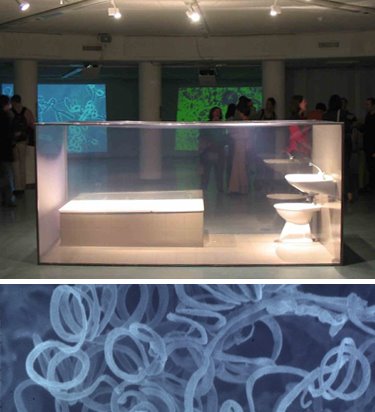 Microcosmos, by Polona Tratnik, confronts the spectator with the everyday environment, in which everyone comes in contact with his/her body as also with his/her microorganisms.
A bathroom was set up in a gallery space. It was first sterilized, then optimum living conditions were established - growth medium, moisture, oxygen. The microorganisms from the artist's body were transmitted to the surfaces of the bathroom furniture and into the water. The bathroom was then covered with transparent foil. From that moment on no other microorganisms could enter the bathroom space and none of the inner microorganisms could escape.
The spectator's reaction to the situation is spontaneously negative. However, pictures of the microscopic species were projected onto the gallery walls. The images are beautiful, like abstract pictures with nice compositions, colors and forms. But if we confront them with living microorganisms for which we have strong negative reactions, the perception becomes complex. [+more]via we-make-money-not-artLabels: biology, process, transmedia
MOTO
 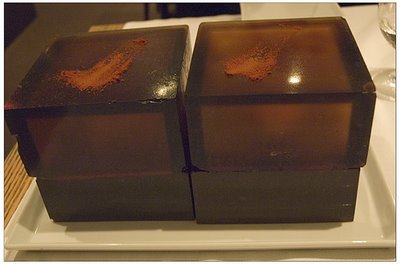 The tiny opaque box is made of a superinsulating polymer. Mr. Cantu from Moto Chicago heats the box to 180°C in an oven and places a raw piece of sea bass inside. A waiter then delivers it to your table where you can watch the fish cook. [+ more]
[+ more] photo by Flickr Labels: gastronomy, molecular gastronomy, restaurant
HOW TO GROW AN ORAGINA BOTTLE
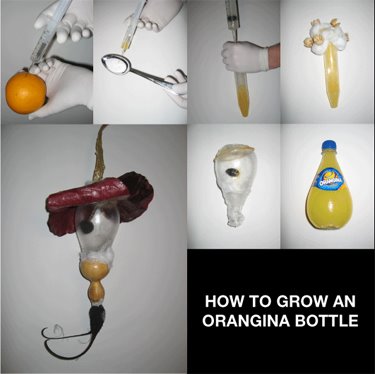 Consider an Orangina bottle: shaped like an orange it is designed to look like one. But it does so in a very primitive way. Imagine the product is the packaging. Wouldn’t it be great if we could grow Orangina bottles?
It is not hard to imagine that genetic technology makes it possible to grow oranges with a hard plastic skin. In additon, oranges can be modified to produce enzymes which degrade the flesh of the orange resulting in a self-generated juice… better than the real thing! [+more]via next natureLabels: biology, packaging, process, technology
WD~50
  Wylie Dufresne pioneered at wd-50 on transglutaminase, an enzyme that allows two separate proteins to form irreversible bonds. Here an example of shrimp meat glued to each other formed into noodles. [+ more] Labels: gastronomy, molecular gastronomy, restaurant
COHDA DESIGN
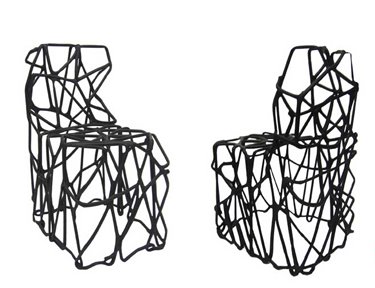 Cohda Design worked for two years to develop a process to reform and re-heat domestic plastic packaging waste and turn it into chairs and tables. They look at our ever-growing piles of excess food wrappings and plastic bags and see a design possibility rather than an ecological nightmare. The chairs appear to be cast iron but are rigid plastic. They would be great in the living room or the garden. Because of the intrinsic flexibility of the material, they are actually quite comfortable to sit on and very light. No colours or additional pigments are added to the 100% recycled materials. The colour of the furniture depends on the packaging sources--the green chairs are made from plastic waste sourced in England, the grey from Europe. [+ more]via treehuggerLabels: design, process, product, shape, sustainability
MOLECULAR GASTRONOMY 101: BIOLOGY BASICS
 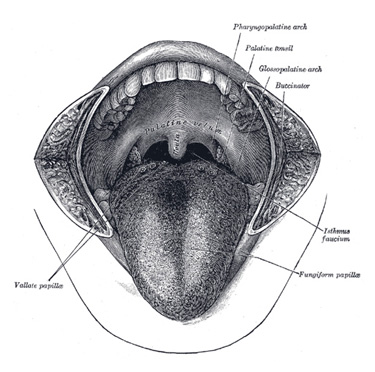 "To understand the Molecular Gastronomy "movement" its best to start from First Principles. To begin, its useful to re-introduce ourselves with the physiological basis of taste. This means - let us examine the organs that higher vertebrates (specifically we humans) use to taste what we eat.Although we all have mouths and noses, it is easy to take them for granted and to not be aware of their complexity." by Nika's Culinaria. An introduction in the biology basics of molecular basics. [ + more] via nikas-culinariaLabels: gastronomy, molecular gastronomy, website
I.V. - PLANT POT
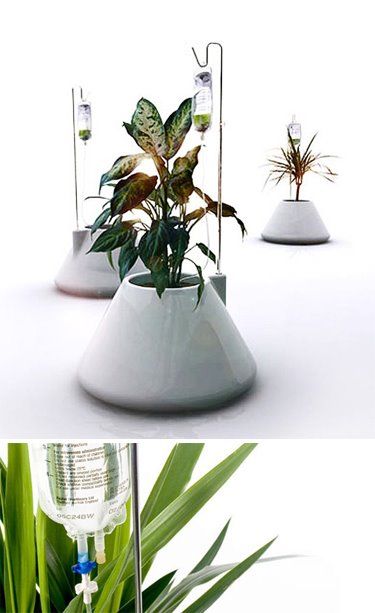 Food for plants!This self-watering plant pot's main feature is a medical drip feed. This unique characteristic allows the plant to be nourished with water and food as it is required. The drip feed provides a striking design focus as well as acting as a reminder to its owner as to when it needs topping up. [+ more]via inhabitatLabels: design, process, product
PANE CHAIR
 The Pane chair is made of a translucent spongy material called polyester elastomer. A half cylindrical part is covered with a sheet and baked in an oven to fix its shape, with the ends of the arms remaining exactly like two pieces of twisted textile. But why “pane”? In Italian, “pane” means bread and Tokujin Yoshioka explains that the project’s development closely resembled cookery: he had to try different ingredients and do a lot of oven baking before he got the appropriate recipe. What’s more, the Italian word “pane” sounds good. It reminds us of fine-smelling and inviting panetone or muffins prepared in their paper tubes. About three years ago, Tokujin was reading National Geographic and came across the wonder of fibres and textiles. He was particularly enthused by fibrous structures that, despite their softness, demonstrate great strength in their capacity to absorb forces. They are heavy but not solid, airy but not hard.Definitely a food for design favourite! [+ more]Labels: design, process, product, shape
GAT FOG
 Gin and Tonic Fog Party by Martin Guixé. Artificial indoor fog made of Gin and Tonic.Gat Fog party is an artificial indoor meteorological phenomenon based in weather engineering for "cultural farming" purposes.What more can we say...brilliantly simple and curiously serious! [+more]Labels: design, fooddesign, process
NANOFLOWERS
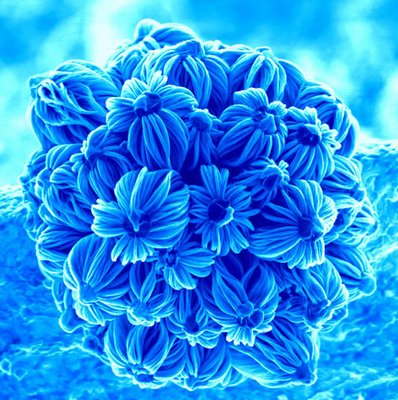 These crystalline ‘nanoflowers’ were developed by Cambridge University PhD student Ghim Wei Ho. The nanostructures of silicon carbide are grown from droplets of gallium on a silicon surface. These nanoflowers will be used in new applications, such as water repellant coatings or new types of solar cells. [+more]via next natureLabels: nano, shape, technology
FRUIT TATTOOS
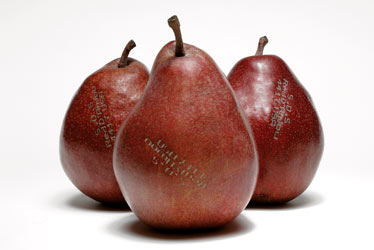 Goodbye, pesky stickers. A growing number of produce packers and distributors are experimenting with natural-light labeling, a new process that uses a laser to etch identifying information (country of origin, variety, etc.) into the skins of fruits and vegetables without bruising or causing other damage. In our taste tests with pears from Southern Oregon Sales, the labeled areas proved entirely edible, if oddly textured. The process allows suppliers to attach more specific data to individual items—such as when a peach will be ripe enough to eat and other handy tidbits—in a way that won't stick to your hair. [+more]via TimeLabels: packaging, process, product
NENDO
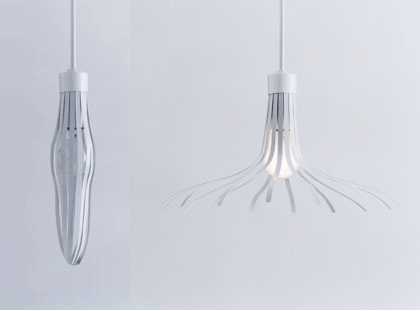 The hanabi lamp design by Oki Sato from the creative design office Nendo. The heat of the bulb makes this shape-memory alloy lamp “bloom” whenever the light is turned on. “hanabi”, the Japanese word for “fireworks”, literally means “flower + fire.” Both flowers and fire fade away so quickly and easily. Like its namesake, this light flickers between beauty and disappearance. [+ more]Labels: design, material, process, product, shape
I ♥ CHAR SUI
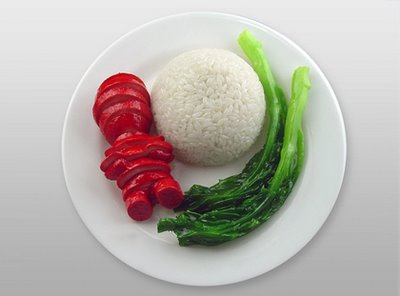 The first chinese's designer platform toy exhibition "I,CHINA" in Shanghai organised by the guys from Adfunture.Many of the custom I,WZLs have an accompanying poster to go with them. There are some great pieces of artwork materialising from this show.
And ... not to forget a custom Wzl dish by Jellymon. Take a look at some pics form the opening night. [+ more]via Adfunture
BIOJEWELLERY
 The project is seeking couples who want to donate their bone cells - a couple having their wisdom teeth removed would be ideal. Their cells will be prepared and seeded onto a bioactive scaffold. This pioneering material encourages the cells to divide and grow rapidly in a laboratory environment, so that the scaffold disappears and is replaced by living bone tissue. The couple’s cells will be grown at Guy’s Hospital and finished bone tissue will be taken to a studio at the Royal College of Art to be used in the design of a pair of rings. Following consultation with the couple, the bone will be combined with traditional precious metals so that each has a ring made with the tissue of their partner. [+ more]Labels: design, process, product, shape
BLACKHONEY.MGX
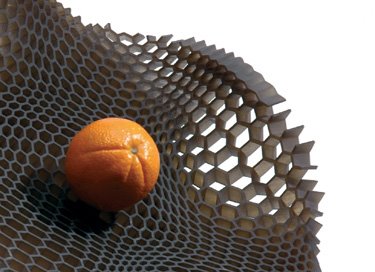 Blackhoney.mgx bowl series designed by arik levy for materialise. Like the name reflects, and with its hexagon shapes, blackhoney is inspired by honeycombs. This simple and elegant design belies the complex mathematics and high-tech rendering techniques that are used to create these stunning pieces. The truly unique aspect of each bowl is that it was created through the use of rapid prototyping technology. This 3-d material printing process allows for an unlimited freedom of design far beyond the capacity of traditional manufacturing processes. You may be wondering why materialise products are named with the *.mgx extension? *.mgx is the file extension for materialise's proprietary software. each product produced by materialise is rendered from a unique *.mgx file which accompanies your product on a cd rom. You can reproduce your product by sending the *.mgx file to materialise. [+more]Labels: design, material, process, product
MOLECULAR GASTRONOMY
 Food for design wants to inspire people on food design, food science, molecular gastronomy,… That why we support and help to organise Seminars Molecular Gastronomy in Belgium, that will start at Katho university, Roeselare, Belgium. For the first seminar on 20-11-2006 famous scientists like Peter Barham, Jorge Ruiz, top chefs from restaurants ‘In de Wulf’, ‘L’Air du temps’ will participate. For more information >> info@foodfordesign.be Labels: foodfordesign, gastronomy, molecular gastronomy
FULGURO
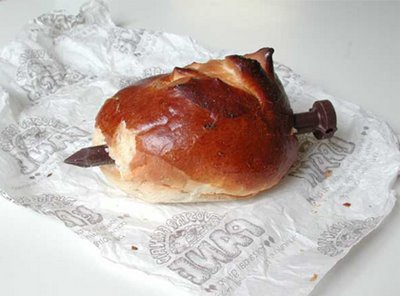 Chocolate; one of the projects of the fulguro studio made during a workshop with Florence Doléac, Olivier Sidet and Ronan Bouroullec. Nail the chocolate into your bread...in development. [+more]Labels: fooddesign, shape
|
|




